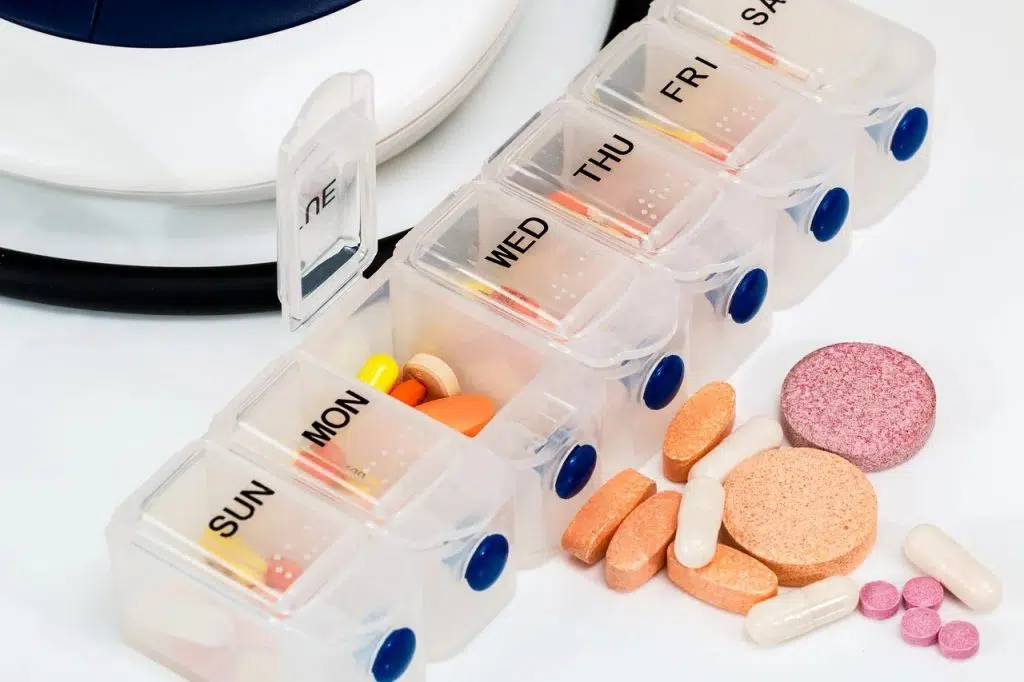
A research letter, published in the Journal of the American Medical Association (JAMA), reports that Americans are heavily relying on melatonin supplements to help them sleep.
What is Melatonin?
Our bodies naturally produce a hormone, melatonin. It is made by the pineal gland in our brains, but is also found in other areas including our eyes and gastrointestinal tract.
It is commonly referred to as the sleep hormone since it’s associated with helping people fall asleep faster. Yet, it’s important to understand that the hormone is not going to nudge you into a coma-like state. Melatonin’s role is to simply prompt your body that it’s time to unwind and fall asleep by governing your circadian rhythm.
Melatonin Supplements
Melatonin has been created in an exogenous supplement form, aka an over-the-counter sleep support; it’s indicated for balancing the circadian rhythm. Because there is evidence to believe that melatonin shows antioxidant and anti-inflammatory attributes, investigative research has been conducted to help better under the therapeutic effects.
Generally speaking, the consumption of melatonin is considered safe. However, adverse consequences have been reported. Additionally, longer-term use and high-dose studies are limited.
New Insights on Exogenous Melatonin
In the 2022 JAMA Journal’s published letter mentioned above, the authors examined melatonin supplemental use trends among American adults between 1999 through 2018. Since the recommended melatonin dosage is not greater than 5mg/day, the authors also studied prevalence in using more than 5mg/day.
The conclusion? There was a significant increase in melatonin supplement consumption from 1999-2000, to 2017-2018 among all demographic groups. The discovery indicates that by 2018, US adults were ingesting more than twice the amount of melatonin vs. the 10 years prior.
Misleading Labels
While melatonin supplements can certainly help promote a restful night’s sleep, the insights from past and recent data analysis is raising safety apprehension, considering the true quantity of melatonin in over-the-counter supplements is evidently much lower, or higher, than what the label indicates — 478% higher to be exact.
The problem with absorbing too much melatonin is it can interfere with our sleep-wake cycle, making it even more challenging to fall asleep. Many experts suggest a safe dose ranges from 2mg to 5mg. The good news is that melatonin does not have the potential to become addictive, unlike some prescription medications used for better sleep.
Another study, published in 2017, reported that as many as 70% of melatonin supplements did not possess the amount indicated on the product’s label.
The study also uncovered evidence of inconsistent ingredients among bottles within the same supplement brand’s line; there was up to a 465% variability of ingredients. For example, some brands had significant amounts of a neurotransmitter, serotonin, but that ingredient was not included on the label.
When shopping for supplements, look for a “USP” verified mark on the dietary label. This is an indication that the product has been through extensive testing.
It is worth nothing that the Food and Drug Administration (FDA) does not regulate supplements.
Alternative Considerations
Melatonin can be a great short-term solution to help with sleep in particular situations, such as recovering from jet lag, or when facing a crisis in your life.
For longer-term solutions, working on your “sleep hygiene” means there are ways to promote better quality sleep. Some examples include reducing or limiting stimulants such as caffeine, chocolate, and alcohol; limiting or eliminating electronics before bedtime including phone and TV screens; committing to a consistent sleep schedule; keeping the bedroom dark with a cooler temperature.
Powered byGST Registration
For more ideas on living a well-balanced, healthy lifestyle, visit our Auxo Medical blog archives.
